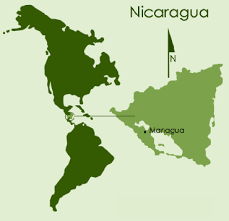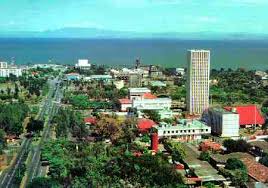Date: Tue, 13 Jul 2010 00:44:23 +0300To: lawsters@googlegroups.com
From: joseph zernik
All I can contribute is that I have contacted Transparency International on a number of occasions, and provided them with evidence and official reports regarding rampant judicial corruption in the United States. Like other US based Human Rights organizations, they had no interest at all. Transparency International explained to me that their activity in the United States is limited to fund raising, in order to document judicial corruption in other countries...
In short - such biased reports help propagate the myth of honest justice system in the United States, when in fact, the level of corruption in unprecedented relative to other "western democracies".
Joseph Zernik
At 12:06 AM 7/13/2010, Joe wrote:
Joseph Zernik
At 12:06 AM 7/13/2010, Joe wrote:
This report is 3 years old ask "what has happened to correct the problem" answer--absolutely nothing not a damn thing. your thoughts are appreciated Joe
06 June 2007
Judicial Corruption Continues To Plague the World, Report Says
Social order, economic growth suffer when justice fails
Social order, economic growth suffer when justice fails
By Jaroslaw Anders
Staff Writer
Washington -- Systemic corruption of judicial systems not only denies citizens their basic human rights, but hinders economic development and sometimes pushes aggrieved populations to violence, according to a recent report.
Global Corruption Report 2007: Corruption in Judicial Systems says that despite international efforts, different forms of judicial corruption continue to afflict many parts of the world. The report was issued in late May by Transparency International, an international anti-corruption nongovernmental organization.
“We are talking not just about outright bribery, but political bias or interference, the influence of money, which can have a profound impact on all of us, undermining our trust in public institutions and their capacity to deliver fair and impartial outcomes,” said Nancy Boswell, the president of Transparency International-USA. She spoke June 6 at an event at the Brookings Institution, a private research organization in Washington.
According to the report, there is a clear connection between high levels of judicial corruption and low levels of economic growth. This comes as no surprise, the report says, since “the expectation that contracts will be honored and disputes resolved fairly is vital to investors, and underpins sound business development and growth.”
Speaking at the same event, Aryeh Neier said widespread mistrust of the institutions of justice also is one of the factors that push citizens to resolve their grievances through the use of force, leading to social disorder and violence. Neier is the president of the Open Society Institute, a private group that promotes democratic governance, human rights, and economic, legal, and social reform.
According to Transparency International, a majority of people in seven of the eight African countries it polled said their legal systems are corrupt and one among five of those who had dealt with courts admit to paying bribes. Another aspect of judicial corruption -- political influence over the judiciary -- is especially serious in Niger, Nigeria, Zambia and Zimbabwe, the organization says. In addition, it cites Kenya and Lesotho as countries with high level of social tolerance for corrupt practices.
In Latin America, 80 percent or more of respondents in Bolivia, Mexico, Paraguay and Peru perceive their judiciary systems as corrupt.
Governments in many low-income countries in Asia -- including Bangladesh, Cambodia, Indonesia, Laos, Nepal, Pakistan, the Philippines, Thailand and Vietnam -- are not providing adequate support for their courts and court officials, “inviting corruption and undermining the rule of law,” the report says.
In Europe and Central Asia, the report cites what it considers undue influence of the executive branch on judicial appointments in countries such as Azerbaijan, Croatia and Turkey. The report also concludes that Russia and Georgia have been backsliding on international standards of judicial independence.
The report also looks critically at the United States, citing a 2004 poll that showed that more than 70 percent of U.S. respondents believe contributions to U.S. judicial campaigns influence judicial decisions in the states in which judges are chosen through elections.
The report points out that judicial and political corruption tend to reinforce each other. A corrupt judicial system is unlikely to sanction people who bribe and threaten politicians. As a result, “honest and unfettered candidates” often are prevented from entering politics or succeeding in public life.
But Susan Rose-Ackerman, a law professor at Yale University and one of the authors of the report, cautioned that judiciary independence is not enough to guarantee impartial justice. “You can certainly have independent judges who are acting with impunity, who are lazy, corrupt, but are completely independent: they can do what they want because nobody can control them,” she said.
The report calls for a delicate balance between judicial independence and accountability. On the one hand, constitutional and legal mechanisms must protect judges from political pressure; on the other, judicial officials should not be permitted to “shelter behind outdated immunity provisions, draconian contempt laws, or notions of collegiality,” the document states.
The full text of the report is available on the Transparency International Web site.
For more information, see Bribery and Corruption.
By Jaroslaw Anders
Staff Writer
Washington -- Systemic corruption of judicial systems not only denies citizens their basic human rights, but hinders economic development and sometimes pushes aggrieved populations to violence, according to a recent report.
Global Corruption Report 2007: Corruption in Judicial Systems says that despite international efforts, different forms of judicial corruption continue to afflict many parts of the world. The report was issued in late May by Transparency International, an international anti-corruption nongovernmental organization.
“We are talking not just about outright bribery, but political bias or interference, the influence of money, which can have a profound impact on all of us, undermining our trust in public institutions and their capacity to deliver fair and impartial outcomes,” said Nancy Boswell, the president of Transparency International-USA. She spoke June 6 at an event at the Brookings Institution, a private research organization in Washington.
According to the report, there is a clear connection between high levels of judicial corruption and low levels of economic growth. This comes as no surprise, the report says, since “the expectation that contracts will be honored and disputes resolved fairly is vital to investors, and underpins sound business development and growth.”
Speaking at the same event, Aryeh Neier said widespread mistrust of the institutions of justice also is one of the factors that push citizens to resolve their grievances through the use of force, leading to social disorder and violence. Neier is the president of the Open Society Institute, a private group that promotes democratic governance, human rights, and economic, legal, and social reform.
According to Transparency International, a majority of people in seven of the eight African countries it polled said their legal systems are corrupt and one among five of those who had dealt with courts admit to paying bribes. Another aspect of judicial corruption -- political influence over the judiciary -- is especially serious in Niger, Nigeria, Zambia and Zimbabwe, the organization says. In addition, it cites Kenya and Lesotho as countries with high level of social tolerance for corrupt practices.
In Latin America, 80 percent or more of respondents in Bolivia, Mexico, Paraguay and Peru perceive their judiciary systems as corrupt.
Governments in many low-income countries in Asia -- including Bangladesh, Cambodia, Indonesia, Laos, Nepal, Pakistan, the Philippines, Thailand and Vietnam -- are not providing adequate support for their courts and court officials, “inviting corruption and undermining the rule of law,” the report says.
In Europe and Central Asia, the report cites what it considers undue influence of the executive branch on judicial appointments in countries such as Azerbaijan, Croatia and Turkey. The report also concludes that Russia and Georgia have been backsliding on international standards of judicial independence.
The report also looks critically at the United States, citing a 2004 poll that showed that more than 70 percent of U.S. respondents believe contributions to U.S. judicial campaigns influence judicial decisions in the states in which judges are chosen through elections.
The report points out that judicial and political corruption tend to reinforce each other. A corrupt judicial system is unlikely to sanction people who bribe and threaten politicians. As a result, “honest and unfettered candidates” often are prevented from entering politics or succeeding in public life.
But Susan Rose-Ackerman, a law professor at Yale University and one of the authors of the report, cautioned that judiciary independence is not enough to guarantee impartial justice. “You can certainly have independent judges who are acting with impunity, who are lazy, corrupt, but are completely independent: they can do what they want because nobody can control them,” she said.
The report calls for a delicate balance between judicial independence and accountability. On the one hand, constitutional and legal mechanisms must protect judges from political pressure; on the other, judicial officials should not be permitted to “shelter behind outdated immunity provisions, draconian contempt laws, or notions of collegiality,” the document states.
The full text of the report is available on the Transparency International Web site.
For more information, see Bribery and Corruption.












